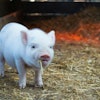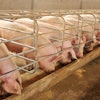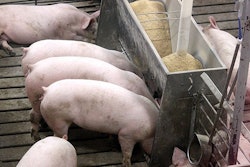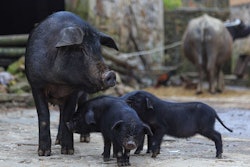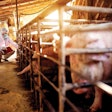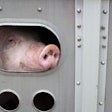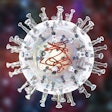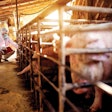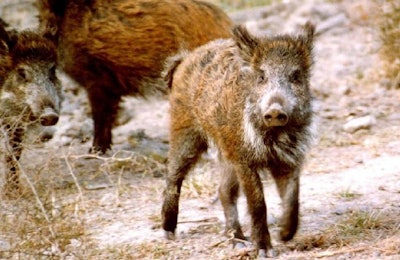
Other countries in Asia report further outbreaks in domestic pigs
While there have been no new cases in domestic pigs, South Korea continues to target its wild boar population to control African swine fever (ASF). Other countries in Asia reporting new outbreaks of the disease in domestic pigs are the Philippines and the Far East of Russia.
During the past week, the number of wild boar in South Korea infected with (ASF) virus has risen from 9 to 14.
All the animals have been identified in the area near the border with North Korea, reports Yonhap. The number of farms known to have been affected by ASF remains at 14. More than 150,000 pigs have been culled in efforts to halt the spread of the disease.
Over the past week, the agriculture ministry has confirmed the infection in 11 wild boar to the World Organisation for Animal Health (OIE). They were found dead between October 10 and 20. For the first time, the infection was detected in Gangwon province, which is in the northeast of the country. It borders Gyeonggi province, where previous cases in wild boar have been detected.
Previously, ASF had been only been detected in two regions of South Korea — in the province of Gyeonggi, and in Incheon metropolitan city.
In efforts to stop the further spread of ASF, South Korean authorities have captured more than 56,000 wild boar this year. According to the United Nations’ Food and Agriculture Organization (FAO), more than 3,600 of these animals were trapped during the past week alone.
OIE has expressed its concerns to North Korea that there have been no recent reports on the ASF situation there, reports United Press International (UPI). The country’s first cases were confirmed by Pyongyang to the OIE in May, but no details of recent developments have been forthcoming.
The government of South Korea has already called on its northern neighbor to share information and tasks so the disease can be tackled jointly and more effectively.
ASF confirmed in illegally transported pigs in China
This week, China’s agriculture ministry has confirmed to the OIE that 48 pigs were found to be infected with ASF at a highway checkpoint in Yulin city in Guangxi Zhuang Autonomous Region. Nine of the animals were found dead, and the rest have been destroyed. They were being transported illegally, according to the official report.
The Beijing government has announced the lifting of restrictions on pig movements in part of Ningxia province in north-central China. The move comes after an ASF outbreak last month in the Xingqing district in the provincial capital, Yinchuan.
After previous ASF outbreaks, the agriculture ministry has declared to the OIE that the disease situation has been “resolved” in five regions. These cover parts of the eastern provinces of Shandong and Hebei, Hunan in the south, Xinjiang in the far northwest, and Shaanxi in central China.
There had been just one outbreak in each of Shandong, Hebei, Hunan, and Shaanxi in the early months of 2019. In each case, animals were culled, and there were no further cases or ASF-positive results over the next six weeks. In Xinjiang, there were three outbreaks before the situation was brought under control. After the six-week “clear” period, the local authority lifted all movement restrictions.
Further disease controls put in place in the Philippines
There have been no official reports of new ASF outbreaks from the veterinary agency in the Philippines to the OIE over the past week.
One week ago, Agriculture Secretary William Dar put the number of areas affected by the disease at 22 in 5 provinces, according to the Philippines News Agency. He said that 52,000 pigs had been culled.
ASF has now been confirmed in 7 areas, all in Luzon, reports Manila Bulletin — Cavite, Quezon City, Pangasinan, Bulacan, Pampanga, Nueva Ecija, and Rizal. Worst affected is Pampanga, where more than 20,000 pigs have died.
Local media report efforts to control the spread of infection. Authorities responsible for the pig slaughterhouse in Laoag city now require all shipments of animals to carry a certificate from their village of origin, reported ABS-CBN. This will help to track animals back to a farm if any show signs of ASF. Laoag is located on the northwest of the island of Luzon in the province of Ilocos Norte.
In the province of Pangasinan, 700 kilograms of illegal pig meat was seized and destroyed by San Carlos city authorities this week, according to the same source.
The country’s food safety agency has reported detecting the ASF virus is pig meat products, reports Inquirer. This news prompted one senator, as well as a group of meat processors, to demand that the brand involved is identified.
Taiwan, Vietnam agree cooperation over ASF prevention
Senior officials in Taiwan and Vietnam have signed a memorandum of understanding (MoU) to prevent ASF. Focus Taiwan reports the agreement covers technology for virus detection, diagnostic methods and immunological research.
Taiwan has so far remained free of ASF, but the disease has hit every region of Vietnam so far this year, and led to the culling of about 5.6 million pigs.
Vietnam’s pig population in September 2019 was 19% below the year-earlier level, according to the FAO. Worst affected is the Red River Delta region in the north of the country, where the number of pigs is down by 38% over the same period.
ASF infects 2 more wild boar in Russia’s Far East
ASF has been confirmed in two more wild boar in the forests of Primorsky krai, which is in the Far Eastern Federal District of Russia. Two animals were found dead in Khankaysky, and one in Pogranichny.
As well as a series of ASF cases in wild boar since July, there have been about 30 outbreaks in domestic pig herds in this Federal District. These affected almost 2,400 animals, mostly from small backyard herds.
Including Russia, the number of Asian states that have reported cases of ASF this year stands at 11. The disease is also circulating among domestic pigs and wild boar in some countries in Europe and Africa.
View our continuing coverage of the African swine fever outbreak.
